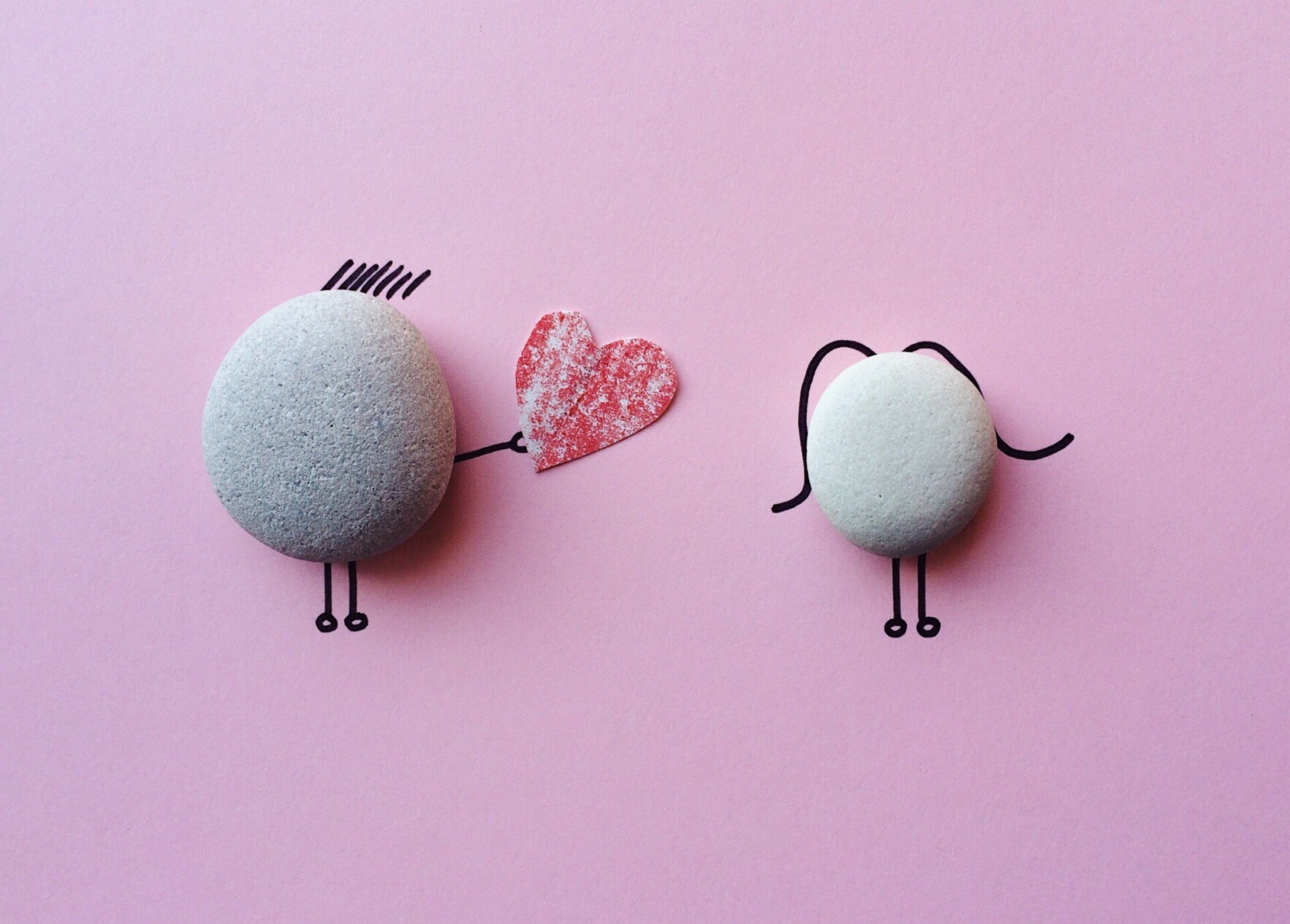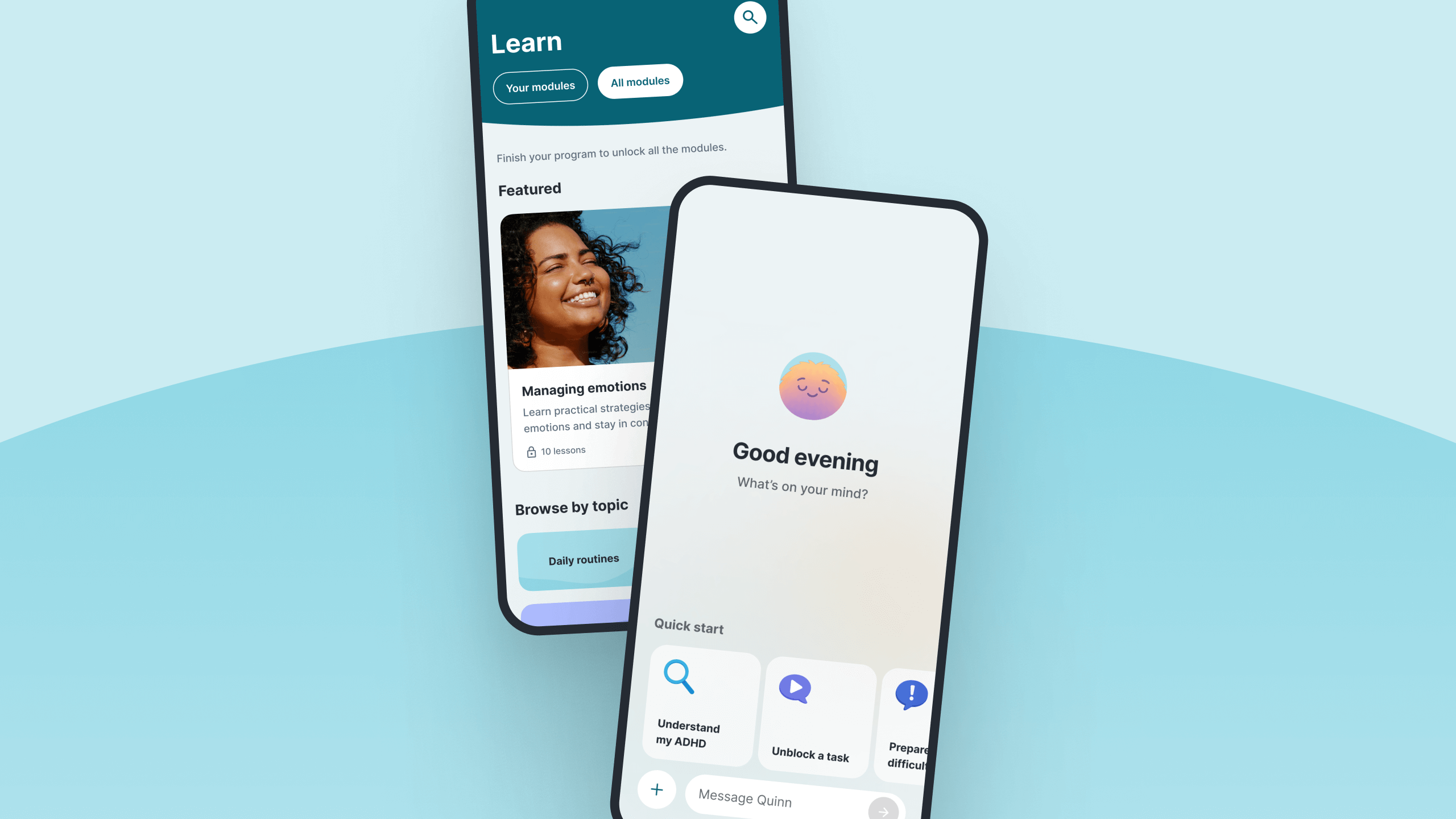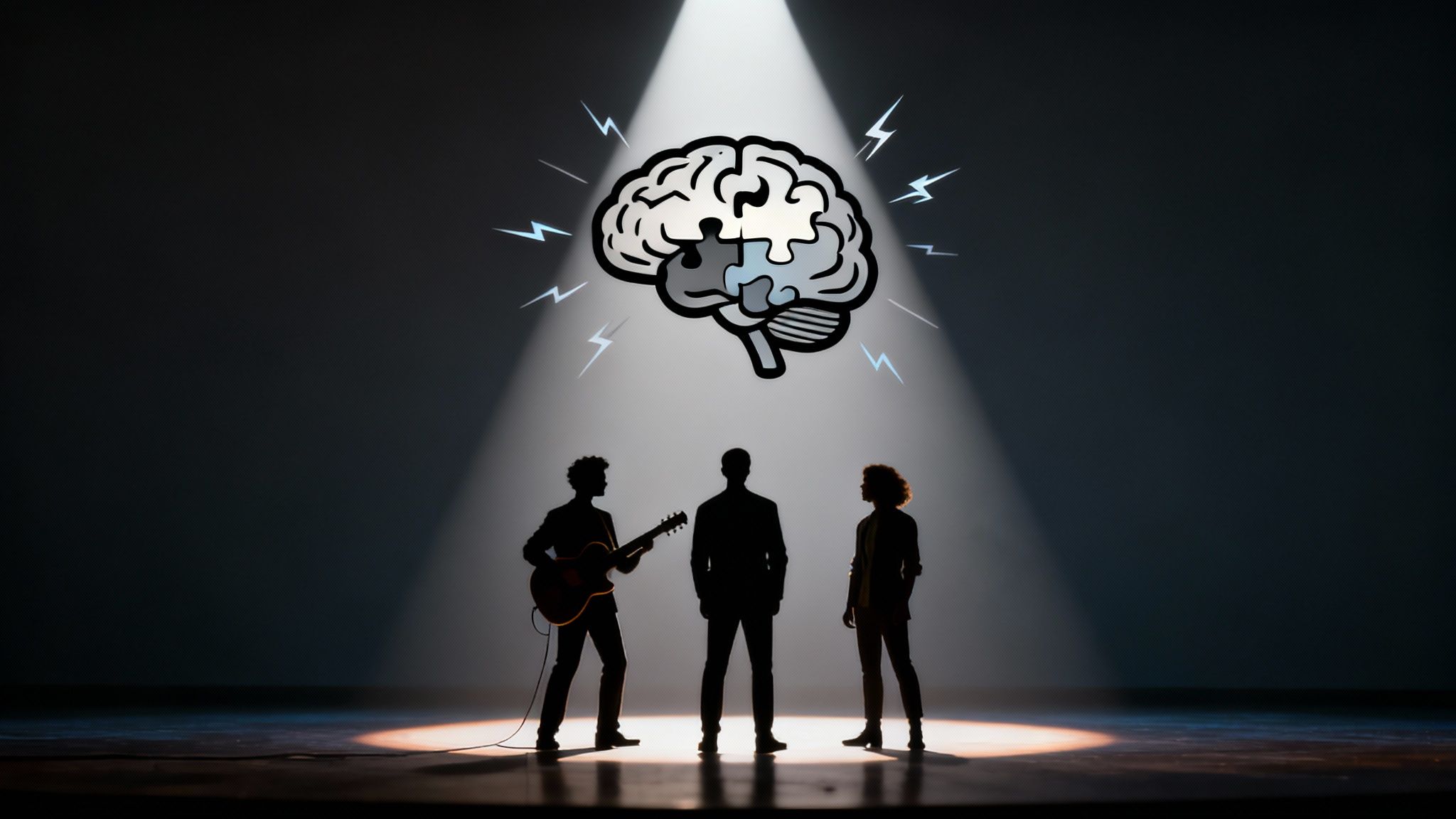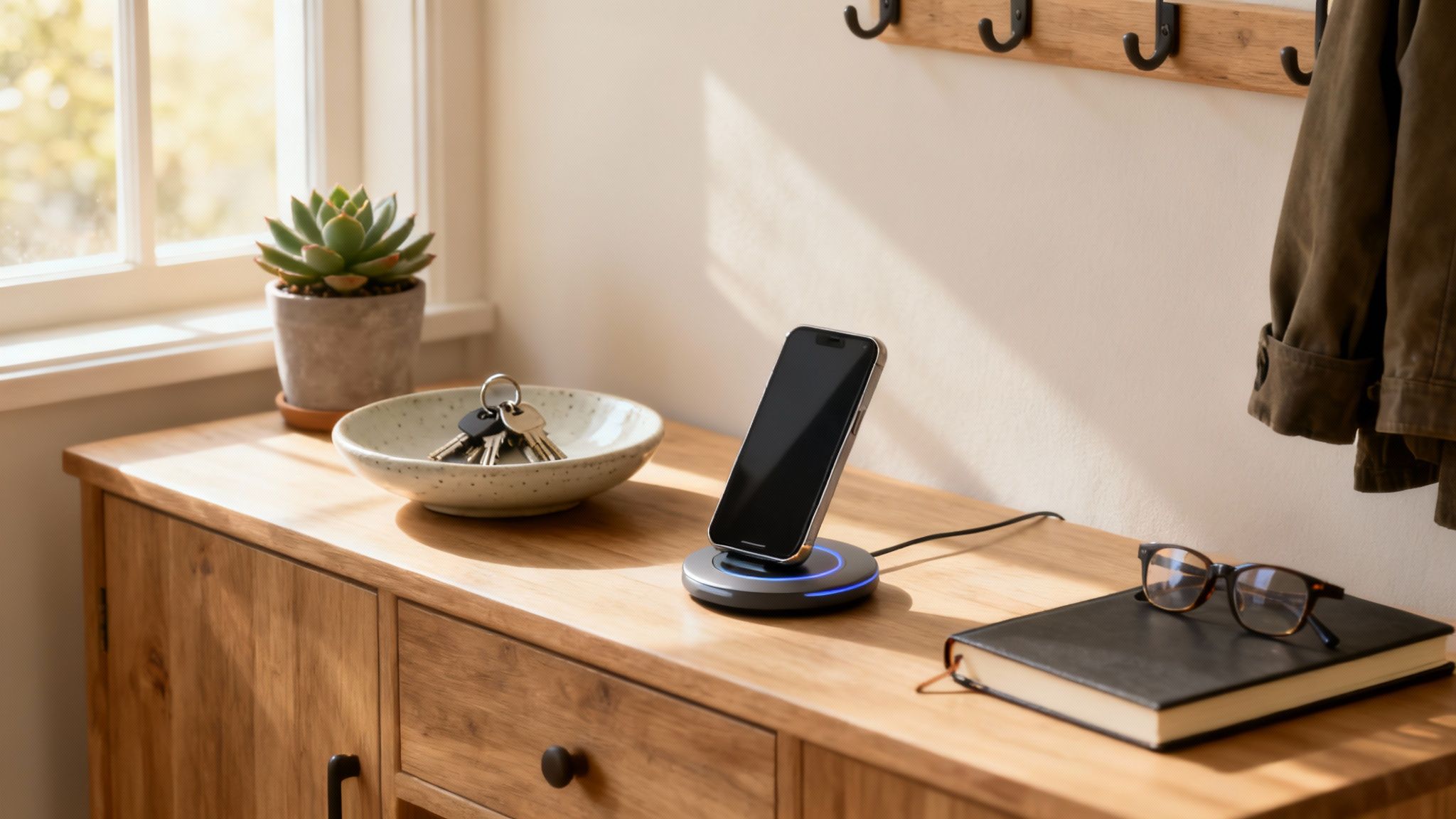While the term “empath” is chock-full of controversial definitions in today’s internet language, the truth is - empathy isn’t a trait that is exclusive to a select few. Empathy is a skill, and everyone has the capacity to learn and develop it.1 But what happens when you throw ADHD in the mix?
Can people with ADHD be empathic human beings?
Are people with ADHD too empathetic?
Whether you’re a self-proclaimed empath or you’re just really emotional and highly sensitive (extremely valid, by the way - because same), it’s critical to draw the line for boundaries when compassion dangerously teeters to toxic empathy.
What are the different kinds of empathy?
Put simply, empathy is the ability to put yourself in someone else’s shoes — to see things from their perspective and understand their feelings. In fact, there are different levels of empathy.
Which of these sound like they may apply to you?

Cognitive empathy
- You can take other people’s perspectives into account even when you don’t share their specific life experiences, beliefs, cultural background, etc.
- You have the ability to vividly imagine what their experience is like, and can understand their feelings.
Emotional empathy
- You share the same personal experience(s) with someone, and you have a deep understanding of what they are feeling.
- You sometimes feel physically distressed for others’ misfortunes.2
- You’re often willing to help someone through their difficult times.
Affective empathy
- You understand and appropriately respond to other people’s emotions — even (and especially) if you happen to disagree with them.
Somatic empathy
- You have visible physical reactions and symptoms that mimic what the other person is experiencing.
What is toxic empathy?
Toxic empathy is when a person is able to identify with another person’s situation, but to such an extreme degree that they prioritize this other person’s challenges and begin to neglect their own personal needs.
Where does toxic empathy come from?
While this may not be true for everyone, the strong desire to be empathetic can be a trauma response.3
If your struggles were dismissed when you were growing up, you may overcompensate by paying extreme attention to other people’s emotional states instead. Whatever the case, it can manifest into unhealthy coping mechanisms that not only affect yourself, but others too.
Vicarious trauma
Dr. George Sachs - clinical director of Inflow and clinical psychologist specializing in ADHD - argues that there is another type of empathy — one that’s not talked about nearly enough: vicarious trauma, the highest form of toxic empathy.
And the most affected population these days?
Professionals and volunteers in healthcare.4
Medical personnel and trauma

Those on the frontlines of healthcare, emergency, and victim services are frequently exposed to violence or trauma. While compartmentalization is an attainable skill, many still expend a great amount of emotional energy at their jobs.
Consequently, their mental health suffers.
This begs the question: what level of care is given to our healthcare workers?
The risk of distress and burnout
In true ADHD fashion, I’m going to go on a quick tangent with an excerpt from The Science of Empathy from Dr. Helen Riess, Director of the Empathy Research and Relational Science Program in Massachusetts. (We’ll get back to ADHD shortly — I promise!)
A healthcare system that does not value its workforce [or] offer equal rights and protections for all [employees] risks attrition, systemic distress, burnout, loss of trust in the healthcare system, and tarnished institutional reputations.
The nature of our healthcare systems brought on by the global pandemic is extremely worrying. And this opens up the opportunity for heightened vicarious trauma among healthcare workers.
You may think that your ADHD doesn’t tie into all of this, but when we take a closer look, you’ll understand why children and adults with ADHD are so susceptible to toxic empathy.
The connection between toxic empathy and neurodiversity
What is emotional dysregulation?
Around 70% of adults with ADHD struggle with emotional dysregulation. If you experience this, you may feel your emotions really intensely and have difficulty managing your moods and emotional responses.
You may hyperfixate on one emotion for long periods of time, or perhaps your mood fluctuates faster than the speed of light.
With emotional dysregulation, emotions have a tendency of just boiling up to the surface instantaneously — it’s extremely exhausting when you experience it all day, every day.
What is rejection sensitive dysphoria?
Tied to this is rejection sensitive dysphoria (RSD), a form of social anxiety specific to the ADHD and autistic communities that amplifies our negative emotional responses to criticism, embarrassment, and rejection — or even the prospect of these things before they ever occur.
This is why ADHDers tend to be hypervigilant when it comes to perceiving the emotions of others.
High empathy
Dr. George Sachs states that people exhibiting high empathy are quite attuned to picking up on facial expressions, changes in body language, modulation of voice, and other subtleties. This hypervigilance in actuality is related to your autonomic nervous system (ANS)5 as it works overtime to scan for potential “threats”.
Signs of toxic empathy
ADHD doesn’t directly cause toxic empathy, but it can make it worse. Not all adults with ADHD have the same experiences, and similarly, not all ADHDers experience toxic empathy. Here are common signs that you may be engaging in it:
- You treat other people’s problems as your own, making you feel invested, and like you need to solve their problems.
- You avoid holding others accountable for their problematic behaviors, sometimes creating a narrative to excuse them of their behavior.
- You feel shame, sadness, or guilt for strangers without the complete story. For example, when you see a sad person, you may create stories on what they’ve been through, ultimately affecting your mood throughout the day.
- You try to convince others to adopt your perception of boundaries (or lack thereof). For example, you may persuade a friend to compromise their work boundaries because you think it can help them get promoted.
- You compromise your needs by catering to other people instead.
Drawing the line

Dr. Sachs explains that it’s vital to identify the fine line between empathy and toxic empathy — he calls it the “resentment line”. Once we move past the line, it can lead to feelings of resentment towards other people and even ourselves.
This is why it’s crucial to foster nurturing spaces in our own lives where are needs are met; and they don’t necessarily need to be met by one person or one “hobby” (because let’s face it, you probably have multiple hobbies already.)
Final thoughts
This may be difficult to internalize, but your worth is not solely measured by how much compassion you give to others. If anything, you should extend that same level of empathy towards yourself. We are not wired to thrive on our own.
We need support systems. Mutual aid is driven by our capacity to perceive and understand other people’s pain. It can be as simple as being present for your grieving friend or as large-scale as building a healthy online community and app for people with ADHD.
Having high empathy isn’t entirely a bad thing. It’s just that in order to provide a safe space for other people, we should also learn how to create them for ourselves first.








